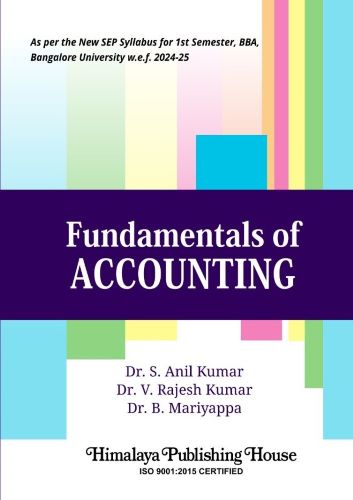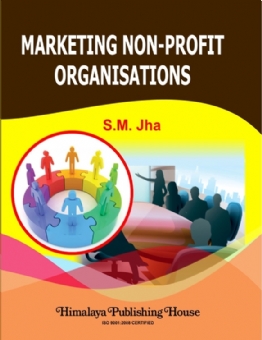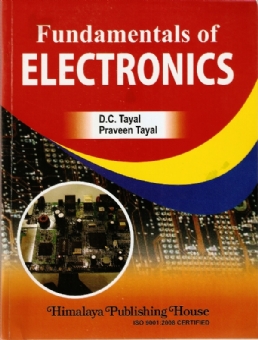Our experience in teaching commerce subjects, especially Accountancy, is in the form of this book in your hands. This book “Fundamentals of Accounting” is prepared for the New SEP syllabus requirements of First Semester BBA.
Being student friendly is the unique feature of this book. The subject matter has been presented systematically, which can enable the reader to master the topics covered, without any additional guidance. Most later provisions have been incorporated in this book.
Contents –
Module 1 INTRODUCTION TO ACCOUNTING
Introduction – Meaning and Definition – Objectives of Accounting – Functions of Accounting– Uses of Accounting Information – Limitations of Accounting – Terminologies used in accounting – Accounting Process and Cycle – Basis of Accounting – Cash basis and Accrual Basis – Accounting Equations – Branches of accounting – Accounting Principles – Accounting Concepts and Accounting Conventions.
Module 2 ACCOUNTING PROCESS
Process of Accounting – Double entry system – Kinds of Accounts – Rules-Transaction Analysis – Journal – Ledger – Balancing of Accounts – Trial Balance – Illustrations on Journal, Ledger Posting and Preparation of Trial Balance.
Module 3 SUBSIDIARY BOOKS
Meaning – Significance – Types of Subsidiary Books –Purchases Book, Sales Book (With Tax Rate), Purchase Returns Book, Sales Return Book, Bills Receivable Book, Bills Payable Book. Types of Cash Book- Simple Cash Book, Double Column Cash Book and Petty Cash Book (Illustrations only on Two Column Cash Book and Petty Cash Book).
Module 4 FINANCIAL STATEMENTS OF PROPRIETARY CONCERNS
Meaning of Hire Purchase and Installment Purchase System, Difference between Hire Purchase and Installment Purchase, Important Definitions–Hire Purchase Agreement, Hire Purchase Price, Cash Price, Hire Purchase Charges; Calculation of Interest, Calculation of Cash Price; Journal Entries and Ledger Accounts in the books of Hire Purchaser only. (Asset Accrual Method only)- Problems.
Module 5 BANK RECONCILIATION STATEMENT
Definition and purpose of Bank Reconciliation Statement (BRS) – Importance is reconciling Bank Statements and Bank Accounts prepared in Businesses – Causes for Differences between Cash Book and Pass Book – Timing differences, outstanding cheques and deposits in transit, Errors in the Cash Book and Bank Statements, Bank charges and Interest, Direct debits, standing instructions and auto payments, dishonoured cheques – Preparation of Bank Reconciliation Statement. Problems.






